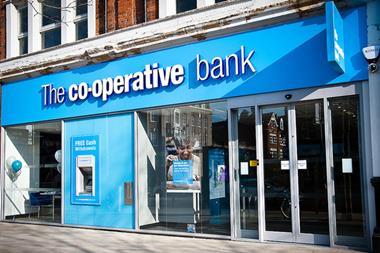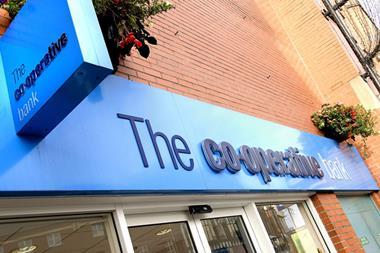The Co-operative Bank’s ‘technical breach’ of the Consumer Credit Act was caused by a computer programming mistake, The Grocer can reveal.
The embattled bank revealed on Monday it needed to raise an extra £400m to cover costs associated with separating itself fromThe Co-operative Group, as well as additional costs for “conduct and legal documentation issues” including “technical breaches of the Consumer Credit Act”.
A senior Co-op source told The Grocer the bank had identified a “batch of loans” where the computer had issued the statement after 368 days - three days late.
“The Consumer Credit Act says it has to be every 365 days,” the source said. “So the fact that one computer programmer has got their sums wrong means all the interest on those loans gets refunded.
“I don’t wish to dismiss the seriousness of some of the ethical and fiduciary lapses exposed by the scandal, and much of the criticism is deserved, but this particular revelation seems quite a harsh penalty.”
The source was also surprised that the extra £400m had been identified at such a late stage “given how many people the Bank of England had employed to crawl over the Bank’s affairs”.
The Co-op Group now needed to decide whether it would invest further capital, or let others take the strain and reserve its limited funds given the precarious state of its finances as a result of the Co-op rescue plan, the source added.
Last December, The Co-op Bank went through a ‘recapitalisation plan’ that saw investors including US hedge funds Aurelius and Silver Point take a 70% share.
The source said the Co-op Group’s current 30% stake was not “a magic number.” And even if its ownership fell below 20% - a level where it could lose its two seats on the board - if the articles of association were changed they would not be allowed to call it The Co-operative Bank.
“I think the hedge funds would be very wary of going down this route given the value of its loyal customers,” he added.
On Monday, the Co-op Bank revealed it expected full-year losses of £1.2bn to £1.3bn when it reports around 8 April.
One-off costs associated with separating the bank from the group were expected to be about £40m. The process had proved “more costly, more time-consuming and more complex than anticipated,” it said.



















2 Readers' comments